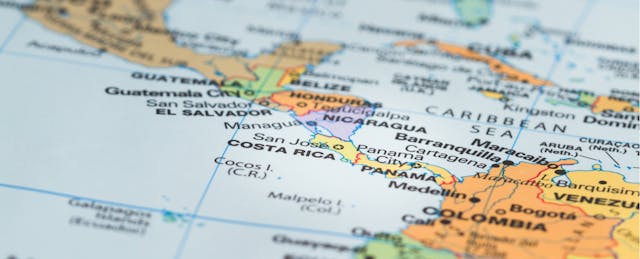Before they founded a company together, Freddy Vega and Christian Van Der Henst were rivals.
They had two different companies that provided services to Flash programmers until the dual forces of the programming language’s declining popularity and a global recession killed that business in the early 2010s. The two men joined together to develop a new company focused on an underserved market in tech training: Latin America.
Founded in 2013, their company, Platzi, offers Spanish- and Portugese-language live-streamed classes for courses that include programming, marketing, design and business. Today, the company said it has raised $6 million in a Series A round led by venture capital firm, Foundation Capital.
Platzi has served one million students to date, and the company claims its students' course completion rates hover between 50 and 70 percent. The company also boasts a sizable headcount of 117 full-time employees.
The company offers subscription plans at $29 a month or $299 a year, with discounts for volume purchases. It provides more than 300 courses and produces 30 new courses (or course updates) a month, accepting payment in 20 different currencies.
In total, Platzi has raised $8.3 million. The fresh funding round will support building more classes on the platform, including in Portuguese, so that Platzi can grow in Brazil. Spain is another market Platzi has targeted for growth, Vega says.
Foundation Partner Rodolfo Gonzalez says Platzi caught his firm’s attention when it became one of the first Latin America-focused graduates of the Y Combinator accelerator. (Vega is from Colombia and co-founder, Van Der Henst, is from Guatemala.)
Gonzalez’s firm last invested in student services provider, Chegg, but hadn’t found another education company that piqued his interest until talks began with Platzi.
For Gonzalez, who is from Mexico, Platzi could become the name brand for Spanish-speaking workers looking to train themselves for more technical and higher paying work.
“Anything that can prepare them for the digital economy, that is the best investment they can make,” Gonzalez says.
An Accenture report estimates that between 75 and 81 percent of workers in Colombia, Mexico, Brazil, Argentina and Chile hold low- or medium-skilled jobs and thus are vulnerable to automation and displacement by technology. By comparison, about 60 percent of the workforce in the U.S. and European Union are similarly vulnerable.
Vega believes Platzi can help these workers develop the skills that will help them win better jobs as Latin America adds more high-skilled labor and appeals to U.S. companies searching for employees in the region.
“Right now Latin America is super hot and the need for talent is amazing,” says Vega, age 33. “We’re training the next generation.”
A McKinsey report states that 40 to 50 percent of Latin American employers say most entry-level job vacancies are due to candidates’ lack of skills.
Vega credits part of the company’s success with building a community among its students. Students answer each other’s questions on the platform and attend in-person events hosted by Platzi in places including Mexico City and Madrid. The company also refreshes its courses and weeds out ones that are more than eight months' old to ensure that the content is relevant and up-to-date for students.
Vega wants to add to the number of large-scale clients and partners—a list that includes IBM, Colombia and Facebook—that use Platzi’s platform to train Spanish-speakers. For now, he estimates that corporate training comprises 20 percent of the business, with the rest driven by aspiring programmers and other students. He’d like to see corporate clients contribute as much as half of Platzi's revenue in the near future.
Vega has big plans for his company, aspiring to become the largest online teacher for Latin America. But he tries to be realistic about his impact.
“A lot of companies talk about changing the world,” he says. “We’re not going to be able to change the world, but we may be able to change the economy of a region.”


